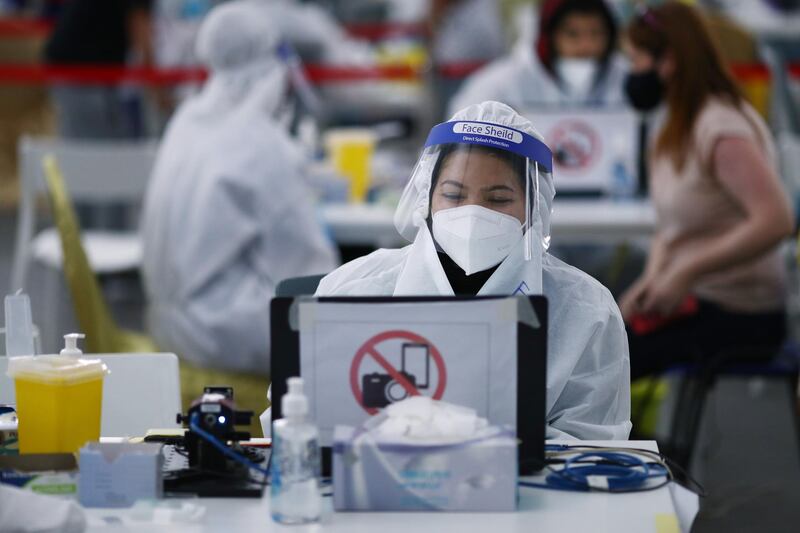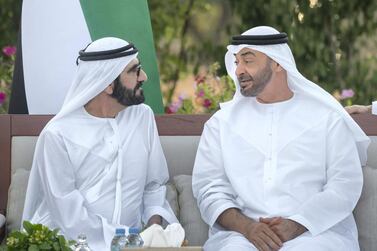Eight months after it was first discovered, the coronavirus remains a global challenge that requires co-ordinated action.
While the scientific community races to find better treatments or a vaccine for Covid-19, the world's best line of defence against the virus is to provide medical aid and expertise to nations that most need it.
The UAE has spearheaded such efforts in the Middle East. Advancing a step further on Friday Abu Dhabi Police launched isolation capsules, a new medical transportation system to airlift Covid-19 patients. The aim is to limit the exposure of paramedics and security officials to the virus.
This is in addition to mass-testing programmes and carrying out the last phase of clinical trials for a vaccine in Abu Dhabi, and providing support to other countries in need. Last week, Sheikh Mohammed bin Rashid, Vice President and Ruler of Dubai, launched a new Emirati initiative that aims to train 1 million medics around the world.
Waterfalls, as the initiative is known, is “part of the UAE's responsibility to the world to support the global medical sector”, Sheikh Mohammed said. The remote programme will provide medical and ambulatory services training to healthcare workers worldwide, including physicians, pharmacists, technicians and others working in hospitals or humanitarian organisations.
Such initiatives are vital in reining in the pandemic and keeping the skills of frontline workers up to date. Although coronavirus no longer completely dominates the headlines, Covid-19 cases have continued to rise around the world. One million British travellers are likely to cancel or cut short their holidays after the UK government said quarantine would be imposed on everyone returning from France.
In the UAE, however, the rate of infections, for now, has slowed.
Waterfalls will also empower healthcare professionals to continue providing life-saving care for patients suffering from various illnesses. Other infections and chronic diseases have continued to cause suffering while large portions of healthcare and aid budgets have been redirected towards research and aid for coronavirus.
Since the early days of the pandemic, Dubai's Humanitarian City has co-ordinated the delivery of medical aid to countries in need. It sent personal protective equipment and medical relief to Iran as early as March, when the country was the centre of the pandemic in the Middle East. Dubai has continued its humanitarian efforts over the months, sending 16 tonnes of medical aid to Iran in late June.
Medical aid is vital for other kinds of emergencies, too. The blast that ripped through Beirut last week and killed more than 200 people and injured thousands resulted also in a spike of Covid-19 cases.
In the aftermath of the explosion, half of all Beirut hospitals are now “non-functional”, according to the World Health Organisation. The US, France and Arab countries sent emergency aid to Lebanon, including medical relief to tend to the wounded and to curb the spread of the pandemic. The UAE sent two planes loaded with medical aid. The latest flight arrived in Beirut’s airport on Wednesday, carrying more than $1.4 million (Dh5m) worth of medical aid.
No one country can overcome the challenges of Covid-19 on its own. The UAE is paving the way for international collaboration and solidarity to become the norm in every sector, especially when it comes to the fight against the pandemic.






